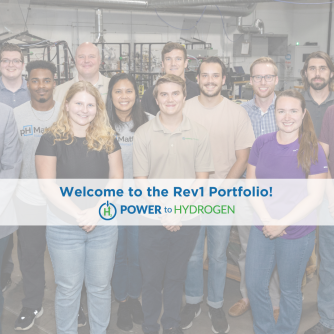Sponsored Post by AWH
Written by Lucas La Tour

AWH helps startups create innovative & disruptive products for the web, mobile, & IoT.
When we first start a company, there are many unanswered questions. It’s easy to look in the mirror and tell yourself that you aren’t fit to be a founder. You may look at your skills or technical expertise and think, “How it is possible for someone like me to create the type of thing that I have in my mind, especially when it requires a certain skill set that I don’t have?” This raises a number of questions including: How technical do you have to be to start a tech company?
Defining Technical
There are different interpretations of the word ‘technical,’ and it’s important to define it. One definition is that you have some special expertise in the type of product you are developing, and you are technical if and only if you have the competency required to build your product. If, for example, you’re building a web application, then you as a technical founder, must be a web developer that knows how to build that type of thing. Similarly, under this definition, if you’re building out a physical product, you must be an industrial designer or mechanical engineer. Or if you are starting a design company, then you must be a designer. Is that what is required to be the founder of a tech company? Are you required to have the competency to build your own product?
Gradations of Technical
There are two possible endpoints on the spectrum of technical competency. On the one end, you could be fully competent. On the other, you could be not competent at all. What difference does that make?
It might be worthwhile to consider an extreme example of what one might call competence: Elon Musk. Musk is the paragon of technical founders. He’s a brilliant engineer with competencies in not only software development, physics, and mechanical engineering, but also has a significant ability to market his concepts to the world. Regardless of what you might think about his personality on Twitter, he has significant technical expertise. That said, even Musk acknowledges that building a rocket company on your own is humanly impossible.

This is the perfect illustration of how even in the case of extreme competency, it can fall short of being sufficient to create everything for your company. Additionally, it shows that one’s own complete competency is not necessary. Musk acknowledges the fact that there are areas where other people know things that he doesn’t know. The point is that even in the most extreme case you don’t have to be technically competent with respect to every aspect of what you’re building.
The corollary of that is that in order to optimally build your company, you must have other resources in place to fill the gaps in your competency. Those resources can take the form of technology, people, or partnerships with other businesses.
The important thing is to recognize your gaps. What are your strengths and weaknesses as a founder? Where are you falling short and where do you need help? Confidence in yourself doesn’t mean that you ignore your weaknesses. It’s, in part, acknowledging your strengths and weaknesses and reasoning honestly about what you need to do to give yourself the chance to improve.
That said, we haven’t fully answered the question yet, of how technical you need to be. With Musk, for example, we are seeing that someone who is extremely competent in many relevant technical areas, and filling the gaps where needed, can work. But what about an even less technical example?
How about Steve Jobs? People said of Jobs that he didn’t know what he was talking about half the time. In fact, there’s an infamous incident at the World Developer Conference in 1997 during which an audience member challenges Jobs’ technical ability in front of a thousand people.
Jobs responded, “One of the hardest things when you’re trying to affect change, is that people like this gentleman are right, in some areas.” He goes on to say that he doesn’t have all the answers, but it’s a different skillset to fit everything into a grand vision to build a multi-billion-dollar company.
Now whether this comment was handled well by Jobs in the moment is an open question, but the core message is true. Founders have a different kind of role that can involve a wide range of skills outside of deep technical expertise. Could Jobs code? No, but what he brought to the table was the vision, design-thinking, and attention to detail which led to great Apple products, and ultimately a great company. None of this would have been possible without people like Steve Wozniak, and a sea of other talent around him.
We could carry this line of thinking from more technical all the way to not technical at all, where perhaps we have a pure businessperson attempting to start a technology company. In that case, when we think about whether technical expertise is required, the answer is no, but there is some level of basic understand required of what you’re doing. For example, if you don’t know what a computer is and you’re building a computer company, that’s a problem.
In that case, it would be harder to fill gaps in expertise because you may not even know what questions to ask to qualify experts to join your team. But even in this case, through educating yourself and relying on mentorship to help surround yourself with the right people, you can still start a tech company, it just might take longer for you to have the basic understanding required.

Conclusion
Not being technical, doesn’t rule you out as a tech founder. If you don’t have the competency to build your product on your own, it’s up to you to figure out how to put resources in place to make it possible. The way to think about technical competency is as follows:
What is my competency level with respect to this problem?
Does my current competency level meet the needs of this project?
What is the strategy to either develop competency or put resources in place to meet the need?
Some of the answers here could be very straightforward. Sometimes you need to learn from people who have done it first. Sometimes you need to learn the skills on your own. Sometimes you need to hire someone to do it for you. The starting point is an honest reflection on who you are as a founder. Know yourself first, be honest about it, and that will go a long way toward helping you know what you need to do.
Sponsored by AWH
At AWH, we solve complex business problems by creating innovative and disruptive digital products. When you choose to work with AWH, you get more than just a product, you get a partnership. We work with you to create products that change businesses, communities, and lives. You get an elite team of digital product creators and data problem-solvers customized to fit your needs. We have experienced developers in virtually every field, so the sky is the limit. Ready to start a conversation?







